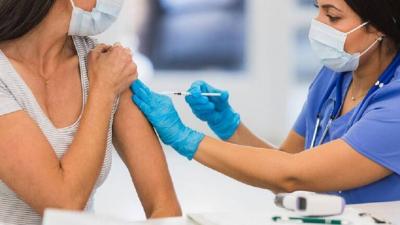A new study has revealed that COVID-19 vaccines lead to abnormal menstruation in half of vaccinated women. The survey was published in the journal Science Advances on Friday and was conducted by researchers from the University of Illinois and the University of Washington School of Medicine. In April 2021, around 40,000 individuals aged 18 to 80 from around the world were asked to fill out an online questionnaire about menstrual cycles, which scientists later analyzed and organized.
Researchers initiated the study following a significant number of anecdotal reports from early 2021 onward describing unusual bleeding in menstrual cycles among women and transgender men who received the COVID-19 vaccine. According to the study's results, 42% of respondents who previously had regular cycles reported experiencing heavy bleeding after vaccination. Meanwhile, 44% noted no changes, while 14% reported lighter menstrual periods. Furthermore, other participants who typically do not menstruate, including transgender men, postmenopausal women, and those using long-acting contraceptives, also experienced unusual bleeding.
Respondents received vaccines from Pfizer, Moderna, Johnson & Johnson, or other vaccines approved outside the United States. Participants also reported that none of them had contracted COVID-19 before vaccination. The study, which is the largest of its kind to date, appears to support findings from smaller previous surveys. However, the researchers emphasize that the changes observed in women's cycles are temporary and should not be used to question the overall effectiveness and safety of COVID-19 vaccines.
The researchers concluded that the potential consequences of contracting the virus are likely more severe than menstrual cycle issues, while warning that delaying vaccination for even a few weeks is not advisable for women. They hope that increased transparency regarding the side effects of COVID-19 vaccines will help reduce public hesitancy and concerns.




